This article was co-authored by Trudi Griffin, LPC, MS. Trudi Griffin is a Licensed Professional Counselor in Wisconsin specializing in Addictions and Mental Health. She provides therapy to people who struggle with addictions, mental health, and trauma in community health settings and private practice. She received her MS in Clinical Mental Health Counseling from Marquette University in 2011.
There are 17 references cited in this article, which can be found at the bottom of the page.
wikiHow marks an article as reader-approved once it receives enough positive feedback. This article received 11 testimonials and 85% of readers who voted found it helpful, earning it our reader-approved status.
This article has been viewed 224,301 times.
Many people experience panic attacks during stressful or scary situations, so you're not alone if you struggle with this problem. While these attacks usually don't cause any lasting harm, they can be very scary and you'll naturally want to avoid them any way you can. Although your doctor can prescribe you medication to help with your condition, you could also manage your panic attacks naturally. By staying mindful and controlling your breathing, you can successfully get yourself through a panic attack. In your daily life, take steps to reduce your anxiety and stress to avoid more panic attacks in the future.
Steps
Getting through a Panic Attack
-
1Recognize the physical and emotional symptoms of a panic attack. When you start having a panic attack, the first thing you’ll probably notice are the physical symptoms. If you’re aware of your body and what it’s telling you, you can recognize a panic attack when it starts and take steps to work through it.[1]
- Physically, panic attacks usually start with chest tightness, shortness of breath, dizziness or feeling faint, nausea or upset stomach, chills, sweats, and shaking.
- You’ll also probably have a sudden onset of negative thoughts and feelings of dread. You might feel like you’re losing control of yourself or the situation, which increases your fear.
- These symptoms usually appear quickly and build in intensity for 10-20 minutes. This is usually when the panic attack reaches its highest point.
- If you’ve never had a panic attack before, then this is probably a very scary experience. Remember that panic attacks are a common occurrence and people get through them, so you can too.
-
2Acknowledge that you’re having a panic attack. While you may want to try, suppressing or denying the panic attack can make it worse. Accept what’s happening by telling yourself, “I’m having a panic attack.” Admitting it might feel like you’re giving up, but it’s an important way to look at the situation logically. By maintaining your awareness, you can work through the panic attack.[2]
- If anyone is around you, tell them you’re having a panic attack as well, and you need some time to get through it.
Advertisement -
3Tell yourself that everything will be okay and you’ll get through this. Positive talk can counteract the negative feelings that come along with a panic attack. Keep repeating positive things to yourself, like “I’ll get through this” or “It will be over soon.” Continue doing this until you feel better.[3]
- If you’ve had panic attacks in the past, remind yourself that you’ve gotten through this before and will get through it again.
- Speaking to yourself logically also helps. Say things like, “This can’t hurt me, I’ll be fine when it’s over” helps remind you that you aren’t in immediate danger.
-
4Use the 4-7-8 breathing technique to avoid hyperventilating. Hyperventilating, or taking very fast breaths, will raise your heart rate and could make the panic attack worse. Focus on taking slow, deep breaths. Count to 4 as you breathe in through your nose. Hold that breath in for 7 seconds, then count to 8 as you slowly push all the air out. This slows your heart rate down and can prevent the attack from getting worse.[4]
- Making a "whoosh" sound with your lips as you breathe out is a good trick to focus on your breathing and distract yourself from the panic attack.
- Closing your eyes and blocking out the rest of the world is also helpful while you’re breathing.
-
5Focus on your surroundings to stay grounded in the situation. This is a good way to distract yourself from the panic attack and prevent your mind from racing. Look around and name what you see, hear and smell. Repeat these aloud to yourself, even if they're mundane. Gradually, you can distract yourself from the panic.[5]
- Say, "I see pigeons by the water, I see people sitting on that bench, I hear a bus passing by, I smell the hot dog stand across the park."
- Remember to continue breathing deeply as you do this.
- Focusing on your surroundings also helps because you'll probably realize there's no immediate threat near you. This can trigger your brain to stop the panic response.
-
6Release your tension with progressive muscle relaxation. This exercise trains you to release each individual muscle group in your body and release the tension that comes with a panic attack. Start by laying down on a flat surface, if you can. Then, tighten your facial muscles as hard as you can before releasing them. Move down your body doing the same thing until you reach your feet. Practicing this technique every day will release tension from your body.[6]
- Use this technique during a panic attack or every day as a general way to release your anxiety. Practicing often makes it easier to perform during an attack.
- There are good physical benefits to relaxing your muscles as well. If you often have soreness or aches, this technique can release knots in your muscles.
-
7Distract yourself from the panic attack with a happy memory or thought. Replacing the negative thoughts and feelings with happier thoughts can help get you through the attack. Think about things that make you laugh or make you happy. Focus on these positive thoughts to distract yourself.[7]
- If you’re at home, try looking at some pictures of your family or pets to cheer yourself up. You can also look at pictures on your phone if you’re out.
Calming Yourself Down
-
1Practice deep breathing. Deep breathing exercises are a great way to reduce your anxiety. Find a cool, quiet place and sit down or lay on your back. Close your eyes and breathe in deeply. Hold it for a few seconds and then release it slowly. Continue this for 10-20 minutes each day for the best results.[8]
- Working on your breathing has 2 benefits. First, it helps you release your tension and anxiety overall, which can prevent panic attacks. Second, it trains you to control your breathing so if you do have a panic attack, you can stop yourself from hyperventilating.
- Putting on some calming music or white noise can help you focus while you breathe.
-
2Do yoga and meditation. Both of these activities release tension and can relieve stress and anxiety. You can do them in your own home, or join a class if you prefer some instruction and guidance. Try to make some time in the morning and evenings for these relaxing activities. They help you prepare for and unwind from the day.[9]
- There are many YouTube videos with basic yoga instruction. Check there for easy videos to work along with.
- There are also guided meditation videos on the internet.
-
3Avoid your panic triggers if you can. You might have a specific trigger for your panic attacks, like heights or certain stressful situations. One way to deal with the issue is identifying and avoiding that trigger. If the trigger isn't something you encounter every day, then do you can probably cut it off it without impacting your life.
- For some people, there is no specific trigger for their panic or anxiety. If you aren't sure, try thinking about the last few times you had a panic attack and what you were doing right before it started. If you see any common factors, these could be causing your problem.
- Avoidance isn't always a productive defense mechanism, especially if it starts interfering with your everyday life. If you find yourself avoiding many things and it's difficult to work or live day to day, then you should see a therapist or psychologist to address the problem.[10]
Reducing Your Anxiety
-
1Exercise regularly to reduce stress. Staying active is a known stress-reducer. Exercise releases hormones that improve your mood, and you’ll also enjoy better health with regular activity. Commit to getting 30 minutes of exercise at least 5 days per week for the best results.[11]
- Aerobic exercises like running, biking, or kickboxing classes are best for releasing tension. Resistance workouts like weightlifting work as well.
- You don’t have to work out hard for the same results. A simple walk every day is great for stress relief.
- Try to incorporate enjoyable activities into your exercises. If you like nature, for example, go on hikes more often.
-
2Eat at regular times to avoid a blood sugar drop. Being hungry can depress your mood and make you more susceptible to panic attacks. Keep your blood sugar regulated by eating regularly and not letting yourself get too hungry. Have small snacks in between meals as well.[12]
- Never skip meals. This causes a blood sugar crash and will depress your mood.
- Eat as many fresh foods as possible. There isn’t much research confirming it, but healthy eating does have some links with less anxiety and stress.[13]
- If you’re often on the move, plan ahead and pack some snacks. A quick granola bar or bag of nuts can prevent a blood sugar crash.
-
3Get a full 8 hours of sleep every night. Sleep deprivation also depresses your mood, so commit to getting as much sleep as you can. A full 8 hours is best, but it’s most important to make sure you stay on a consistent schedule and sleep through the night. Make sure your room is cool and dark, and do relaxing activities before bed like reading or listening to calm music. If you can’t sleep, get up and do something relaxing until you feel tired again.[14]
- Avoid screens before bed. The light can stimulate your brain into thinking it’s time to wake up.
- If you consistently suffer from insomnia, speak with your doctor about it.
-
4Limit your caffeine intake to reduce anxiety. Caffeine is a stimulant that raises your heartrate. This can increase your anxiety and even trigger panic attacks. It also makes it harder to sleep. Limit yourself to 1 or 2 caffeinated drinks per day to keep your heartrate and anxiety down.[15]
- You could try switching to decaf coffee or tea instead of fully-caffeinated drinks.
- If you’re especially sensitive to caffeine, it may be best to cut it out of your diet entirely.
- Remember that there are other stimulants besides coffee. Energy drinks and nicotine can have the same effect.
-
5Try some calming herbal treatments. While many herbs and essential oils claim to reduce anxiety, only a few have been studied. Stick with treatments that doctors have evaluated and approved for anxiety-reduction. Always consult your doctor before taking herbal supplements to make sure they won’t interact with any medications you’re taking.[16]
- Some herbs that may be effective are passionflower, chamomile, valerian root, and lavender. These ingredients come in supplements or teas that you can take daily.
- Always follow the dosing instructions on these products and don’t take more than directed.
- Kava was once considered an effective anxiety treatment, but new studies show that it can cause liver damage. Avoid this treatment.
-
6Avoid drugs, smoking, and excessive drinking. These substances might make you feel better in the short-term, but they could increase your anxiety and risk of panic attacks. Avoid all illegal substances, and keep your drinking limited to 1-2 drinks per day. Since nicotine is a stimulant, avoid smoking as well.[17]
- Some drugs, particularly hallucinogens, can trigger panic attacks.[18]
- If you regularly cope with your anxiety by drinking or using drugs, you may develop an addiction. Speak with your doctor if you have trouble quitting.
Seeking Medical Care
-
1See your doctor to rule out other conditions. In some cases, panic attack symptoms may be part of an underlying medical condition. This is especially true for chest pain, shortness of breath, and rapid heartbeat. If you’re having panic attack symptoms, visit your primary care physician to rule out potential medical causes. This will help you get the right treatment for your condition.[19]
- Your doctor will talk to you about your symptoms and may do diagnostic tests. Then, they’ll diagnose your condition and talk to you about your treatment options.
- If you have panic attacks, tell your doctor that you'd like to treat the condition naturally. They may have some recommendations.
-
2Talk to your doctor about managing your panic attacks. Try not to worry because panic attacks aren’t dangerous. However, they can be really upsetting and may make it hard for you to get through your day if they occur often. Ask your doctor what you can do to help manage your condition. Visit your doctor if you have the following symptoms of a panic attack:[20]
- Sense of impending doom
- Loss of control
- Rapid heart rate
- Trembling, shaking, and sweating
- Shortness of breath or throat tightness
- Chest pain
- Chills or hot flashes
- Nausea or abdominal pain
- Dizziness, lightheadedness, or faintness
- Numbness or tingling
- Feeling detached
-
3See a therapist if your panic attacks interfere with your life. It’s always best to work with a therapist if you have panic attacks, but it’s essential that you get help if your panic attacks make it hard for you to get through your day or maintain relationships. Your therapist will help you learn new ways to cope with your anxiety and panic. Additionally, they’ll help you manage your panic attacks so they occur less often. Ask your doctor for a referral or search online for a therapist who’s experienced in treating panic attacks.[21]
- In particular, Cognitive Behavioral Therapy (CBT) is a useful form of treatment for panic attacks. CBT for panic attacks is focused on changing your thoughts about your panic attacks in order to change your feelings (anxiety, fear) and behaviors.[22]
-
4Get immediate medical care if you display heart attack symptoms. If you have panic attacks often, you likely don’t need to worry. However, panic attacks and heart attacks can share symptoms, and it’s important to get emergency medical care if you think you’re having a heart attack. This will help you get proper treatment to help you recover.[23]
- During a heart attack, you might have chest pain, trouble breathing, and pain that spreads to your jaw, neck, shoulder, back, or stomach.
- If you’re having a panic attack, you should start to feel better in 20-30 minutes, so try not to worry.
-
5Check with your doctor before using supplements. There are some herbal supplements which may possibly reduce anxiety if used properly. Common ones include chamomile, valerian root, passionflower, and St. John's Wort.[24] While supplements are generally safe, they aren't right for everyone. Your supplements could interfere with medications you're taking, worsen your medical conditions, or trigger an allergic reaction. Talk to your doctor to make sure supplements are safe for you to take.[25]
- Tell your doctor about the medications and supplements you're already taking.
- Explain that you're hoping to treat your panic attacks with supplements. Your doctor may be able to recommend additional supplements for you.
Expert Q&A
-
QuestionWhat are some treatments for panic disorder that don't involve medication?
 John A. Lundin, PsyDJohn Lundin, Psy. D. is a clinical psychologist with 20 years experience treating mental health issues. Dr. Lundin specializes in treating anxiety and mood issues in people of all ages. He received his Doctorate in Clinical Psychology from the Wright Institute, and he practices in San Francisco and Oakland in California's Bay Area.
John A. Lundin, PsyDJohn Lundin, Psy. D. is a clinical psychologist with 20 years experience treating mental health issues. Dr. Lundin specializes in treating anxiety and mood issues in people of all ages. He received his Doctorate in Clinical Psychology from the Wright Institute, and he practices in San Francisco and Oakland in California's Bay Area.
Clinical Psychologist Certain types of psychotherapy can be helpful for panic disorder. Panic attacks can often be traced to repressed anger, for example, and by helping you to be more conscious of your anger, a skilled therapist can help your panic attacks subside.
Certain types of psychotherapy can be helpful for panic disorder. Panic attacks can often be traced to repressed anger, for example, and by helping you to be more conscious of your anger, a skilled therapist can help your panic attacks subside. -
QuestionHow do you calm an anxiety attack?
 Tracy Carver, PhDDr. Tracy Carver is an award-winning Licensed Psychologist based in Austin, Texas. Dr. Carver specializes in counseling for issues related to self-esteem, anxiety, depression, and psychedelic integration. She holds a BS in Psychology from Virginia Commonwealth University, an MA in Educational Psychology, and a Ph.D. in Counseling Psychology from The University of Texas at Austin. Dr. Carver also completed an internship in Clinical Psychology through Harvard University Medical School. She was voted one of the Best Mental Health Professionals in Austin for four years in a row by Austin Fit Magazine. Dr. Carver has been featured in Austin Monthly, Austin Woman Magazine, Life in Travis Heights, and KVUE (the Austin affiliate for ABC News).
Tracy Carver, PhDDr. Tracy Carver is an award-winning Licensed Psychologist based in Austin, Texas. Dr. Carver specializes in counseling for issues related to self-esteem, anxiety, depression, and psychedelic integration. She holds a BS in Psychology from Virginia Commonwealth University, an MA in Educational Psychology, and a Ph.D. in Counseling Psychology from The University of Texas at Austin. Dr. Carver also completed an internship in Clinical Psychology through Harvard University Medical School. She was voted one of the Best Mental Health Professionals in Austin for four years in a row by Austin Fit Magazine. Dr. Carver has been featured in Austin Monthly, Austin Woman Magazine, Life in Travis Heights, and KVUE (the Austin affiliate for ABC News).
Licensed Psychologist First, be compassionate with yourself—your nervous system is going haywire. Medication can help, as can breathing practices. You can also cultivate the observer side of yourself, where you're watching what's happening without getting enmeshed in it.
First, be compassionate with yourself—your nervous system is going haywire. Medication can help, as can breathing practices. You can also cultivate the observer side of yourself, where you're watching what's happening without getting enmeshed in it.
References
- ↑ https://medlineplus.gov/ency/article/000924.htm
- ↑ https://www.helpguide.org/articles/anxiety/panic-attacks-and-panic-disorders.htm
- ↑ https://www.betterhealth.vic.gov.au/health/conditionsandtreatments/panic-attack#self-help-suggestions
- ↑ https://www.uofmhealth.org/health-library/uz2255
- ↑ https://health.clevelandclinic.org/panicking-in-public-5-surprising-tips-for-getting-through-an-attack/
- ↑ https://www.uofmhealth.org/health-library/uz2225
- ↑ https://www.helpguide.org/articles/stress/quick-stress-relief.htm
- ↑ https://www.health.harvard.edu/mind-and-mood/treating-anxiety-without-medication
- ↑ https://www.mayoclinic.org/diseases-conditions/generalized-anxiety-disorder/diagnosis-treatment/drc-20361045
- ↑ https://www.helpguide.org/articles/anxiety/phobias-and-irrational-fears.htm
- ↑ https://www.mayoclinic.org/diseases-conditions/generalized-anxiety-disorder/diagnosis-treatment/drc-20361045
- ↑ https://medlineplus.gov/ency/article/000924.htm
- ↑ https://www.mayoclinic.org/diseases-conditions/generalized-anxiety-disorder/diagnosis-treatment/drc-20361045
- ↑ https://medlineplus.gov/ency/article/000924.htm
- ↑ https://www.nhs.uk/mental-health/conditions/panic-disorder/
- ↑ https://www.mayoclinic.org/diseases-conditions/generalized-anxiety-disorder/expert-answers/herbal-treatment-for-anxiety/faq-20057945
- ↑ https://www.nhs.uk/mental-health/conditions/panic-disorder/
- ↑ https://www.ncbi.nlm.nih.gov/books/NBK64178/
- ↑ https://www.betterhealth.vic.gov.au/health/conditionsandtreatments/panic-attack#self-help-suggestions
- ↑ https://my.clevelandclinic.org/health/diseases/4451-panic-disorder
- ↑ https://www.nhs.uk/mental-health/conditions/panic-disorder/
- ↑ http://www.researchgate.net/profile/Mark_Powers/publication/8408836_Mechanism_of_change_in_cognitive-behavioral_treatment_of_panic_disorder_evidence_for_the_fear_of_fear_mediational_hypothesis/links/0912f506ae3836efe2000000.pdf
- ↑ https://www.betterhealth.vic.gov.au/health/conditionsandtreatments/panic-attack#self-help-suggestions
- ↑ https://www.ncbi.nlm.nih.gov/pmc/articles/PMC2959081/
- ↑ https://www.hopkinsmedicine.org/health/wellness-and-prevention/herbal-medicine
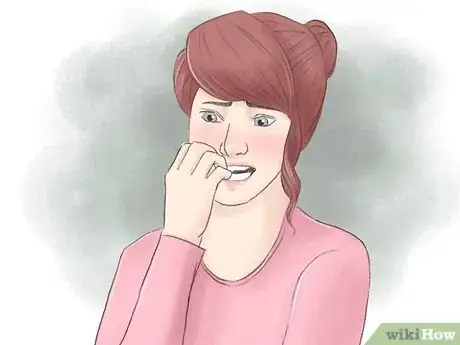
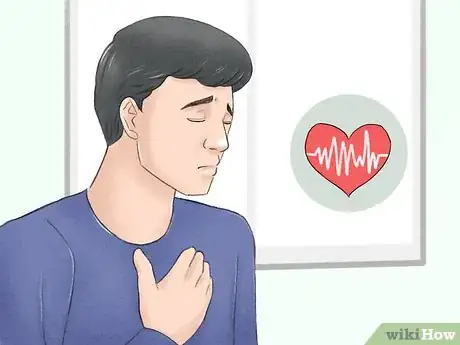
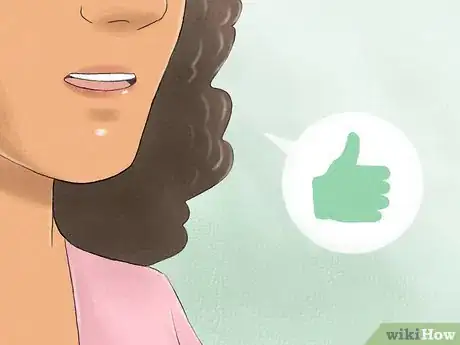
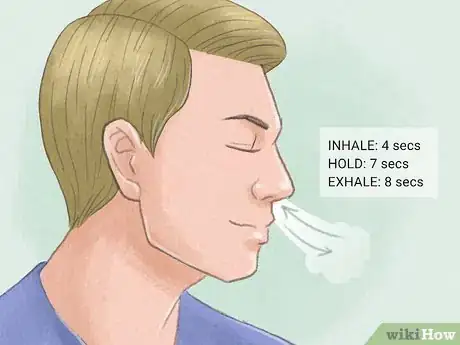
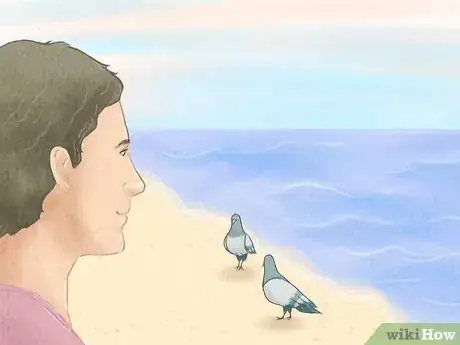
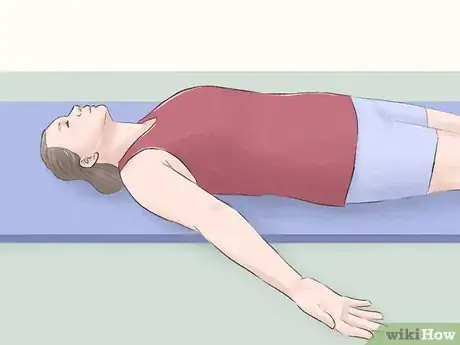
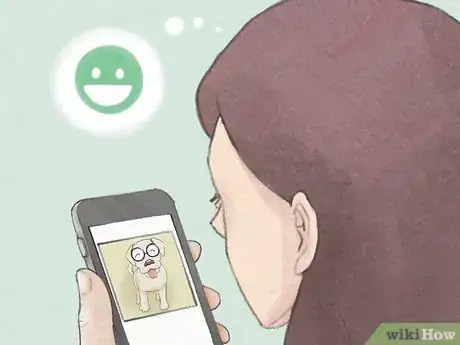
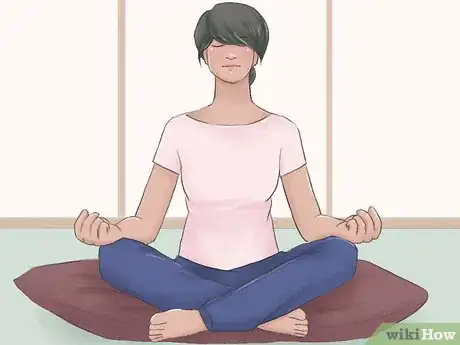
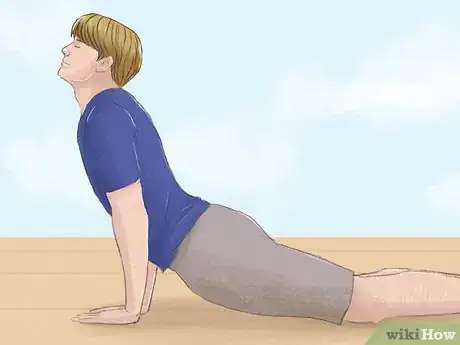
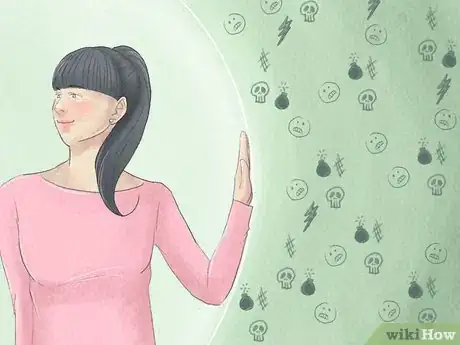
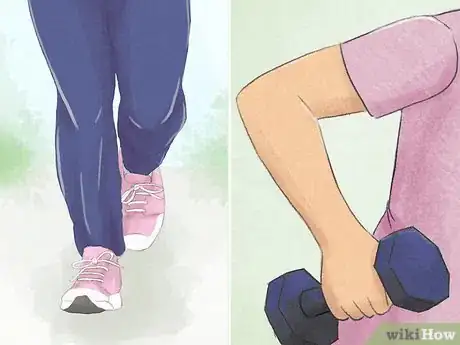
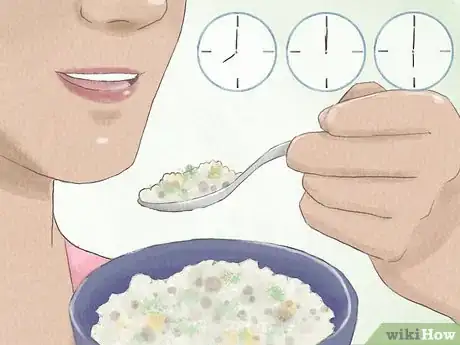
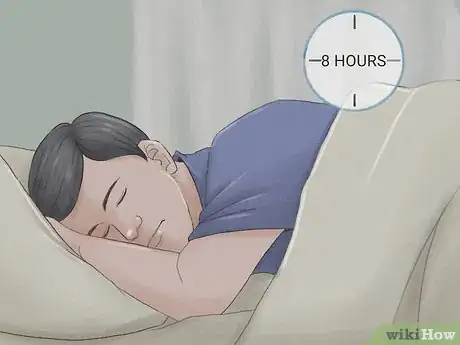
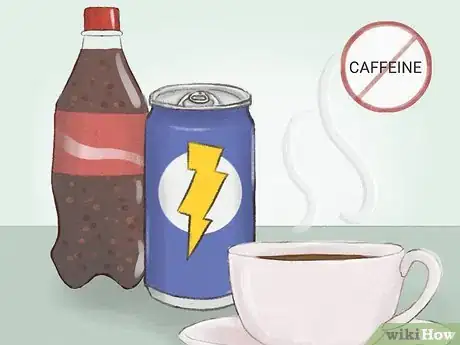
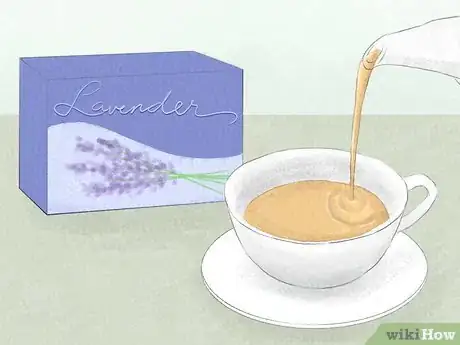
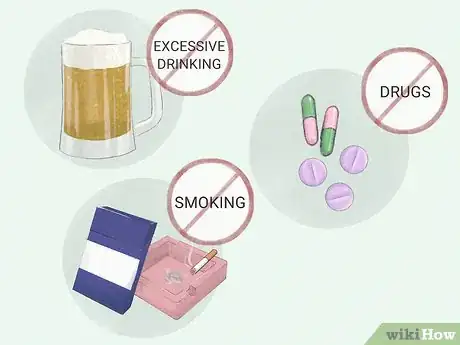
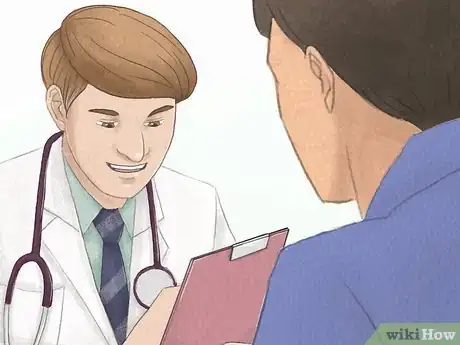
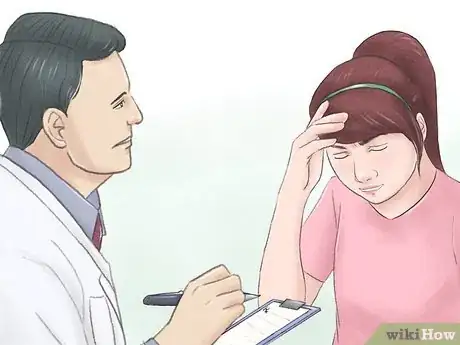
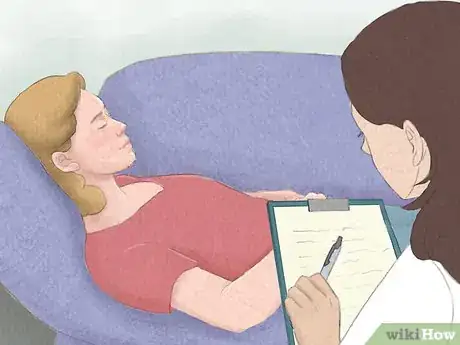
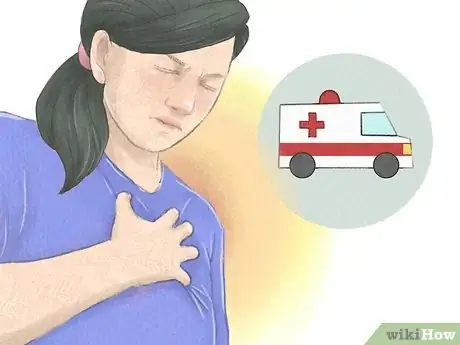
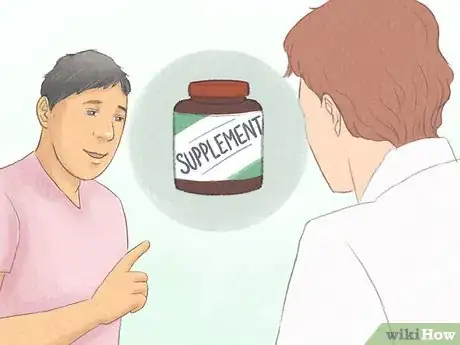

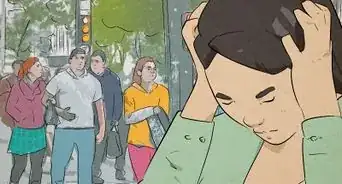
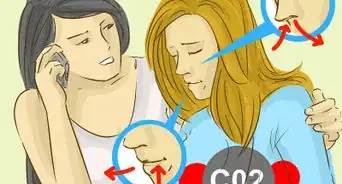
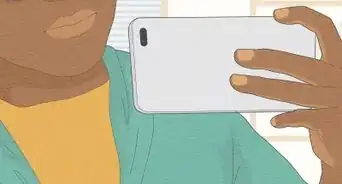





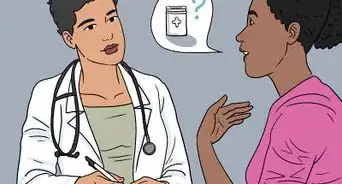
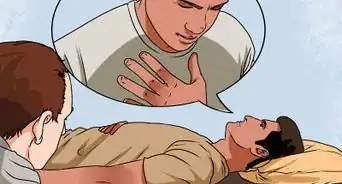













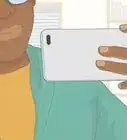



































Medical Disclaimer
The content of this article is not intended to be a substitute for professional medical advice, examination, diagnosis, or treatment. You should always contact your doctor or other qualified healthcare professional before starting, changing, or stopping any kind of health treatment.
Read More...